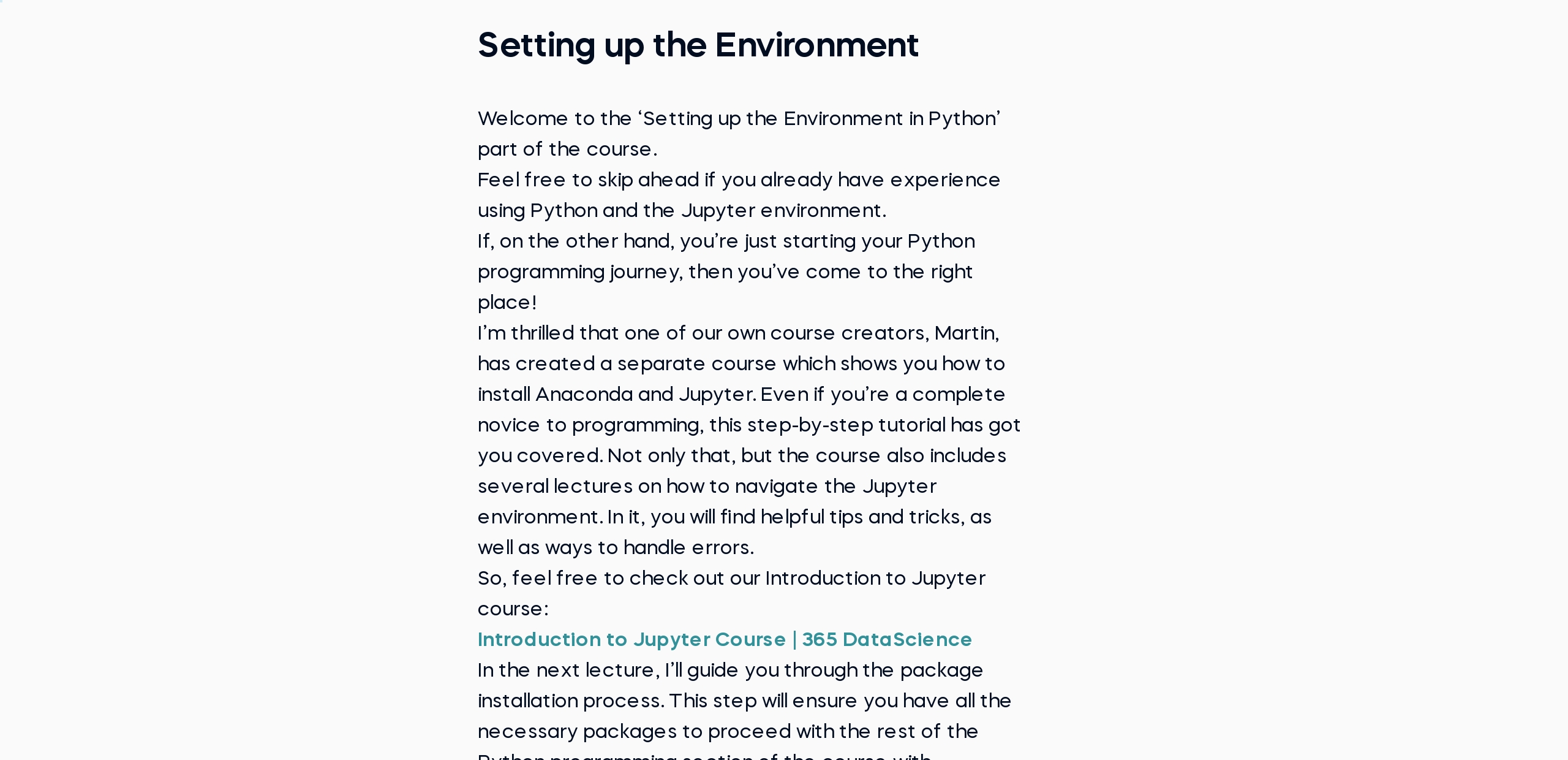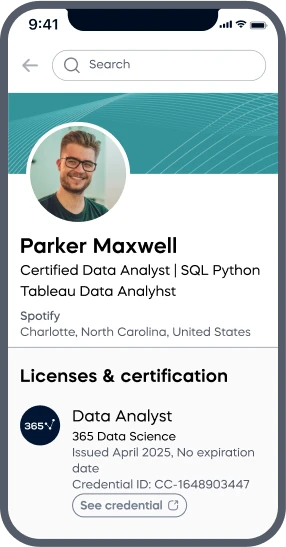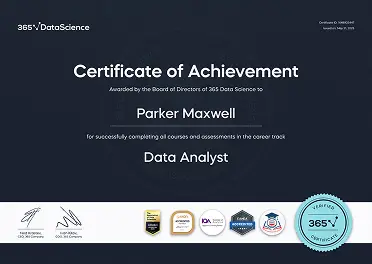Mani A.
See all reviews
Master Support Vector Machines (SVMs): from theoretical foundations to practical applications






Skill level:
Duration:
CPE credits:
Accredited

Bringing real-world expertise from leading global companies
Master's degree, Bioinformatics
Description
Curriculum
Free lessons

1.1 What does the course cover?
4 min

1.2 Introduction to Support Vector Machines
5 min

1.4 Linearly separable classes - hard margin problem
5 min

1.6 Non-linearly separable classes - soft margin problem
5 min

1.8 Kernels - Intuition
6 min

2.1 Setting up the environment
1 min
9 in 10
of our graduates landed a new AI & data job
9 in 10
people walk away career-ready
94%
of AI and data science graduates
successfully change
ACCREDITED certificates
Craft a resume and LinkedIn profile you’re proud of—featuring certificates recognized by leading global
institutions.
Earn CPE-accredited credentials that showcase your dedication, growth, and essential skills—the qualities
employers value most.





Certificates are included with the Self-Study learning plan.


How it WORKS